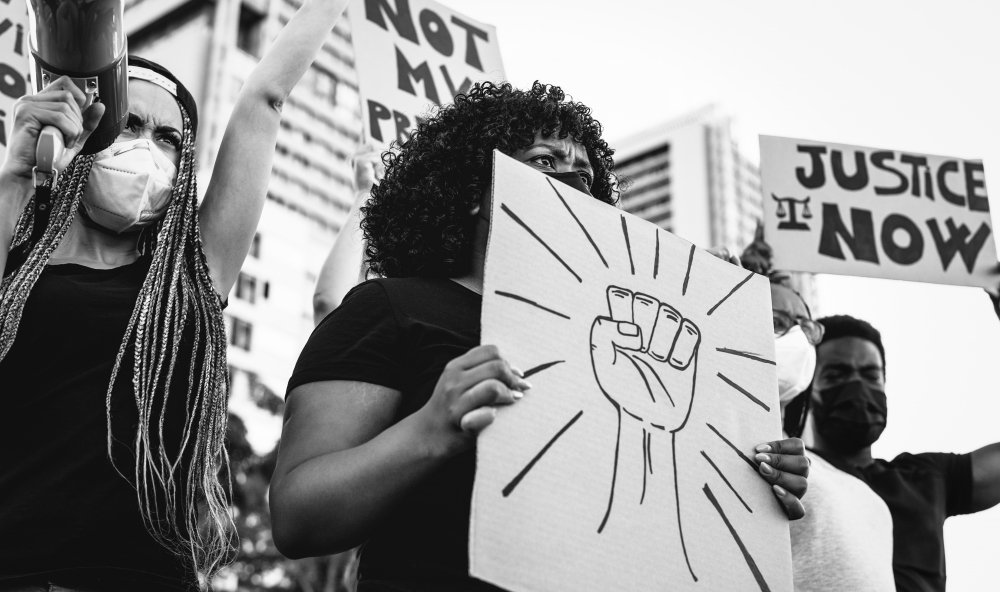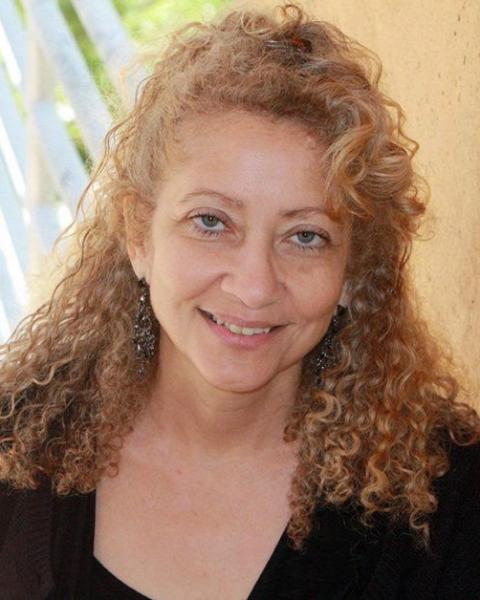
Difficult Dialogues

In a sense, Belinda Robnett has been preparing for this job most of her life.
“As an African-American woman, I can’t think of a time when I wasn’t concerned about educational equity,” said Robnett, UC Santa Barbara’s new Vice Chancellor for Diversity, Equity and Inclusion. “This position provides an opportunity for me to achieve my lifelong goal to increase student and faculty diversity and to create and support a climate of inclusion that fosters excellence. To quote Nelson Mandela, ‘Education is the most powerful weapon which you can use to change the world.’”
Her dedication to public education is in fact what drove Robnett to join the campus in fall 2020. She also was inspired by the University of California’s “historic promise and commitment to ‘recognize and nurture merit, talent and achievement by supporting diversity and equal opportunity.’” UCSB’s own commitment “to build our teams, cultivate our leaders and create an organizational culture that values diversity, equity, inclusion and social justice as the building blocks of excellence,” she said, is what sealed the deal.
With those ideals front and center, Robnett has launched one of her first big initiatives, “Anti-Blackness: Difficult Dialogues.” The yearlong lecture series is meant to highlight the excellence of African American scholars throughout the U.S., and to provide knowledge and assistance with the difficult dialogues around racial justice.
The next talk, “The Sword and the Shield: The Revolutionary Lives of Malcolm X and Martin Luther King Jr. in the Age of Black Lives Matter,” is set for Friday, Nov. 20, at 12 p.m. Presenter Peniel Joseph is a professor of ethics and political values, and founding director of the Center for the Study of Race and Democracy, at University of Texas at Austin.
Viewers with UCSB or UC Irvine email addresses can pre-register for the lecture here; a Zoom link will be provided prior to the event.
The series will resume January 13, 2021, with the lecture “A Crucible Moment for Race in America: The Crisis of Racial Capitalism and the Challenge of the Movement for Black Lives” from Barbara Ransby, of University of Illinois, Chicago. Also on the docket are:
• Errol Anthony Henderson, Penn State — “The Revolution Will Not Be Theorized: Cultural Revolution in the Black Power Era,” Feb. 10
• Joyce Bell, University of Minnesota — “How ‘Diversity’ Underdeveloped Higher Education,” Feb. 26
• William Smith, University of Utah — “We Charge Genocide!: The Mental and Physical Tolls of Racial Battle Fatigue among Black People,” March 31
• Jennifer Nash, Duke University — “Intersectional Iconography: Promise, Peril, Possibility,” April 23
• Samuel Sinyangwe, co-founder, We the Protestors — “Using Data to Fight Racism and Police Violence,” May 7
“The idea for the series emerged last spring out of the Black Lives Matters protest marches that seek to draw attention to the persistence and pervasiveness of anti-Blackness and racial inequality in a society that supports institutional and systemic barriers to racial justice,” Robnett said. “As I listened to news commentators and engaged in discussions about the movement with colleagues, it became clear that there was a knowledge gap.
“Importantly, the events speak to the legacy of American slavery,” she added. “The series gives voice to the African American experience, and provides UCSB participants with an opportunity to engage in an educational journey that lays bare the roots and ongoing reality of racial injustice.”
The series speaks to Robnett’s overall vision of a “truly diverse and inclusive campus that fosters an environment where each member is empowered to bring their unique differences, points of view and contributions.” Noting UCSB’s designations as both a Hispanic Serving Institution and an Asian American Native American Pacific Islander-Serving Institution as significant achievements in that endeavor, she said more must be done.
“Our mission must include strengthening historically underrepresented communities both on campus and beyond,” Robnett said. “With diversity, inclusion, equity and social justice at the forefront of the University of California’s core values, we must strive to promote a culture that celebrates these principles and fosters a sense of belonging for all members of the UCSB community. Within the academy, it is our responsibility to educate our community and the larger society about systemic and institutional inequities and exclusion. Universities are not immune from biases, racism or prejudice. All members of UCSB must be proactive and work against injustice.”
This series is co-sponsored by the UC Irvine School of Social Sciences, UCI School of Engineering, UCI School of Humanities, UCI Donald Bren School of Information & Computing Sciences, and UCI Office of Inclusive Excellence.



